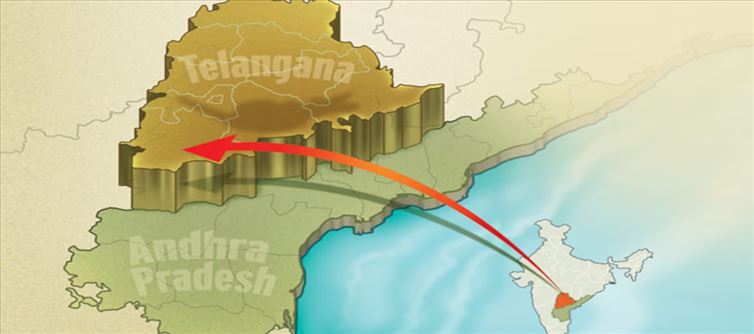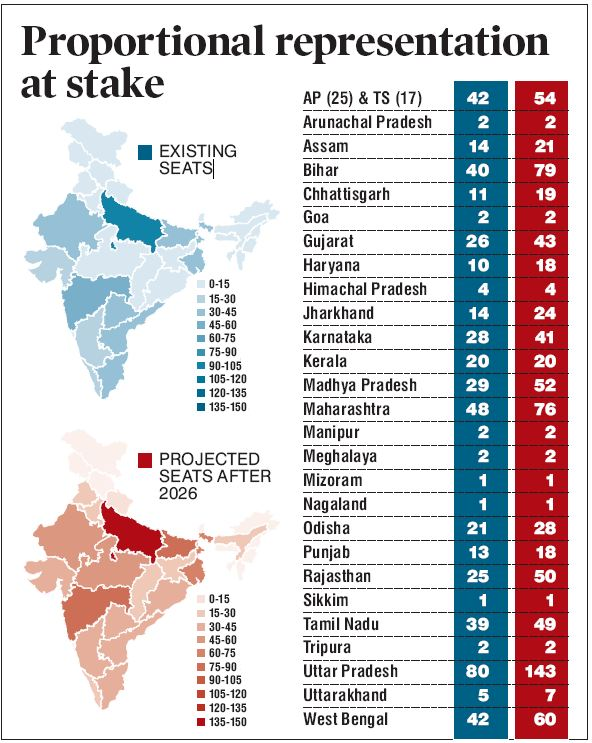Pushpa Telugu Movie Review, Rating
పుష్ప తెలుగు సినిమా రివ్యూ ,రేటింగ్
-
Never search THESE 4 things on Google - It Can Land You In Jail
-
This Country Still Has No Access To INTERNET - Not South Sudan, Malawi, Liberia
-
Husband Goes To Bathe In Ganga - Wife Elopes With Neighbor Guy Taking Cash, Jewelry and Her 5-Year-Old Child
-
Punjab Woman Had Illicit Affair and She Killed Her 14-Year-Old Son For Opposing It - The Truth Is Out After 11 Years!
-
Planning To Buy iPhone 17 Pro in India? You Can Instead Buy In Dubai and Get a Free Dubai Vacation - Tax Burden In India Is Excessive
-
India is More Hurt by Modi's 50% tariff on Indians than Trump's 50% Tariff on Indian Goods
-
Samantha Doesn't Mind Sitting Idle?
-
So... Modi Won 2024 Elections By Cheating Along With ECI ?
-
India Herald Fact Check - We Checked ECI Website To See If Rahul Gandhi Said About A Particular Person Was True And...
-
Why Pooja Hegde And Not Some Other ?
-
Modi Worries that a Strong Leader as the next PM might Land Him in Jail For The Corruption He Has Done In The Past 11 Years
-
Modi Is Going To Visit China - Now Modi Bhakts Will Forget China Helped Pakistan, Chinese Incursions and Call This 'Masterstroke'
-
Rashmika Mandanna Does It Bold Before Cameras
-
Who Bought Russian Oil? Ambani and Nayara Energy - They Sold In the Global Market at a Higher Cost - Indians Never Benefitted, But Adani Profited By...
-
Pay 18% GST on Insurance but claim is rejected, Pay 100% Tax on Fuel but get Blended Petrol - You Pay Huge Income Tax But Get NOTHING in Return
-
Tamannaah Refuses To Do Uncomfortable Scene - Hero Loses Cool
-
Petrol Should Be Around ₹55 Only - Russian Oil and Ethanol Mixing Will Turn Out To Be Two Of India's Biggest Ever SCAMS !?!
-
A Pakistani migrant who tried to rape a schoolgirl in Tokyo was arrested
-
India Herald Exclusive - Sreeleela Joins Ajith's AK64
-
Netizens say they are Modi's Farmer, Fishermen, and Dairy Farmers
-
Urfi Javed often remains in the news for her strange outfits
-
Indian men's hockey team left for an Australia tour!!
-
Priyanka Chopra has posted many pictures of her family !
-
PM Modi invited Russian President Putin to come to India!!
-
The Indian men's hockey team left for an Australia tour!!!
-
The Government will not make any changes in the DPDP Act!!
-
Farhan Akhtar has congratulated his daughter on her birthday!!
-
Firing at Kapil Sharma Cafe Again??
-
The trailer of the horror series 'Andhera' has been released!!!!
-
Ranveer Singh was seen keeping his distance from the paparazzi?
-
Rajinikanth Mania: Coolie Container Office Day 1 Excitement.
-
"Coolie Strengthens Reserving; Rajinikanth's Movie Opens Big."
-
Shruti Haasan Describes Running With Rajinikanth As Fulfilling.
-
"Rajinikanth's Powerful Performance Thrills Fans: 'Thalaivaa Returns!'"
-
Coolie Film Tickets Available Now In India!
-
Rajinikanth Fans Rally For Lokesh Kanagaraj Movie.
-
Preity Zinta Reacts to Uttarkashi Cloudburst!?
-
A video of actress Mrinal Thakur is going viral !!
-
Nani will be seen in the lead role in the film 'The Paradise'
-
Anurag Kashyap is making a comeback with his film 'Nishaanchi'
-
Janhvi-Siddharth's sizzling chemistry seen!!
-
How was Huma Qureshi's cousin murdered?
-
Rashmika Mandanna’s Effortless Elegance by the Riverside..!!
-
Coolie collects 1 crore in 1 hour...!?
-
Trump does not like India's independent operation..!?
-
Have you noticed Mrunal Thakur's Instagram..!?
-
AI In Education: Prioritizing Human-Centered Solutions.
-
India-US deal suspended over tariffs impact..!?
-
Ancient Events On August Eight
-
What Befell On August Eighth In India?
-
Hyderabad Cloudburst..!? Heavy rain damage..!?
-
What Is The Meaning Of August Eighth Day?
-
Why Is August 8 So Unique?
-
MP CM Mohan Yadav gives Rs 1,500 to sisters.
-
Haider Ali: Pakistani Cricketer Facing Rape Allegations.
-
BSF Constable Recruitment 2025 Applications Closing Soon.
-
Karnataka PGCET 2025 Results Available; Download Scorecard.
-
Tamil Nadu Launches Schooling Policy For Tamil-English.
-
India Releases Stamp Honoring Purshottamdas H. Purohit.
-
Uttar Pradesh Approves Universities, Scholarships, And Reforms.
-
Modi Inaugurates Pune-Nagpur Vande Bharat Express August 10.
-
"Government Announces Free Bus Rides For Girls."
-
The film 'Udaipur Files' is finally releasing today!!
-
Salman Khan has done a photoshoot for his clothing brand?!
-
Sonakshi Sinha and Sudheer Babu's much-awaited film 'Jatadhara' released!!
-
This is why Ashish Vidyarthi is away from the big screen!!
-
Priyanka Chopra praises Nick Jonas' performance!!
-
Weapons Review - An Engrossing Mystery With Creative and Shocking Scares
-
Yuzvendra Chahal-Dhanashree's divorce reason..!?
-
Is Allu Arjun-SRK Pan India movie really happening..!?
-
India-China relations will strengthen under Trump..!?
-
Complaint against Gopi-Sudhakar's YouTube channel..!?
-
PCB suspends Pakistan batsman over s*xual assault allegations?
-
Can India Boycott All These American Products In Response To Trump's Tariffs
-
India before 2014 : It's a Flood - India after 2014 : Maa Ganga touches the idol of Lord Shiva
-
Modi Asks Common Citizens To Purchase Only "Swadeshi" Goods For Nationalism - But All MLAs Get Free iPhone 16 Pro in Delhi
-
Pooja Hegde Shines in Hot Sleek Black Ensemble at the Airport
-
Highest Rated Horror Movie Of The Decade - Holds A Perfect 100% Score On Rotten Tomatoes
-
Meet Actress Shanaya Katwe Who Had Affair With Niaz - Own Brother Opposed As He Was Muslim and She Killed Own Brother Brutally
-
Rashmika Mandanna Enters Politics?
-
No Matter Who Makes Your Wife Pregnant, As a Husband You Should Shoulder The Responsibilities - Supreme Court's New Guideline
-
Indian Girls Attitude Towards Divorce and Alimony - Cheap Mindset
-
Kiara Advani's Hot Bikini Body Was CGI? See BTS and Decide
-
Both Man and Woman Married Second Time - Woman Can Take Alimony From Both Husbands, Man is Obliged to Pay Alimony To Both Wives - Ridiculous Judiciary!
-
Young Couple Caught Having Sèx In Broad Daylight At A Railway Station In Front of Hundreds
-
Rashmika Mandanna Slips Into New Fashion Era
-
Before 2014 Crude Oil Price Was $112 per Barrel and Petrol Price was Rs.60/L and now Crude Oil Price is $60 per Barrel and Petrol Price is... Who's Benefitting?
-
Hypocrisy Exposes BJP's Elitist Mindset - Their Own Children Get Global Opportunities While Common Man's Children Are Left Behind
-
Netizens Go GaGa On Rashmika Mandanna New Ad
-
Modi BJP Govt Collect 30% Taxes For Giving Pot Hole Filled Worst Roads
-
Why Trump Talks Daily About Increasing Tariff? Why Trump Explicitly Speak About Russian Oil Deal? Modi's Hands are Tied and He is a WEAK PM !?!
-
Daughter In Law Drank Alcohol With Friends In Hotel Room - Police Launches Enquiry Against Father In Law As He Was Stalking Daughter In Law
-
A House Cleaner In America Owns a ₹35 Lakh Car - In India How Many Years A Person Earning ₹80K Have To Save To Buy A Posh Car?
Empowering 140+ Indians within and abroad with entertainment, infotainment, credible, independent, issue based journalism oriented latest updates on politics, movies.
India Herald Group of Publishers P LIMITED is MediaTech division of prestigious Kotii Group of Technological Ventures R&D P LIMITED, Which is core purposed to be empowering 760+ crore people across 230+ countries of this wonderful world.
India Herald Group of Publishers P LIMITED is New Generation Online Media Group, which brings wealthy knowledge of information from PRINT media and Candid yet Fluid presentation from electronic media together into digital media space for our users.
With the help of dedicated journalists team of about 450+ years experience; India Herald Group of Publishers Private LIMITED is the first and only true digital online publishing media groups to have such a dedicated team. Dream of empowering over 1300 million Indians across the world to stay connected with their mother land [from Web, Phone, Tablet and other Smart devices] multiplies India Herald Group of Publishers Private LIMITED team energy to bring the best into all our media initiatives such as https://www.indiaherald.com

 The new parliament building has sparked a new discussion on the next delimitation exercise, which is likely to be held after the first census to be undertaken after the year 2026, in addition to igniting a political uproar over President Droupadi Murmu's absence from the inauguration. The Delimitation Act of 2002's procedures are followed while defining the boundaries of the Parliamentary and assembly constituencies. The redesign of constituency borders is not a responsibility of the State governments.
The new parliament building has sparked a new discussion on the next delimitation exercise, which is likely to be held after the first census to be undertaken after the year 2026, in addition to igniting a political uproar over President Droupadi Murmu's absence from the inauguration. The Delimitation Act of 2002's procedures are followed while defining the boundaries of the Parliamentary and assembly constituencies. The redesign of constituency borders is not a responsibility of the State governments.



 click and follow Indiaherald WhatsApp channel
click and follow Indiaherald WhatsApp channel